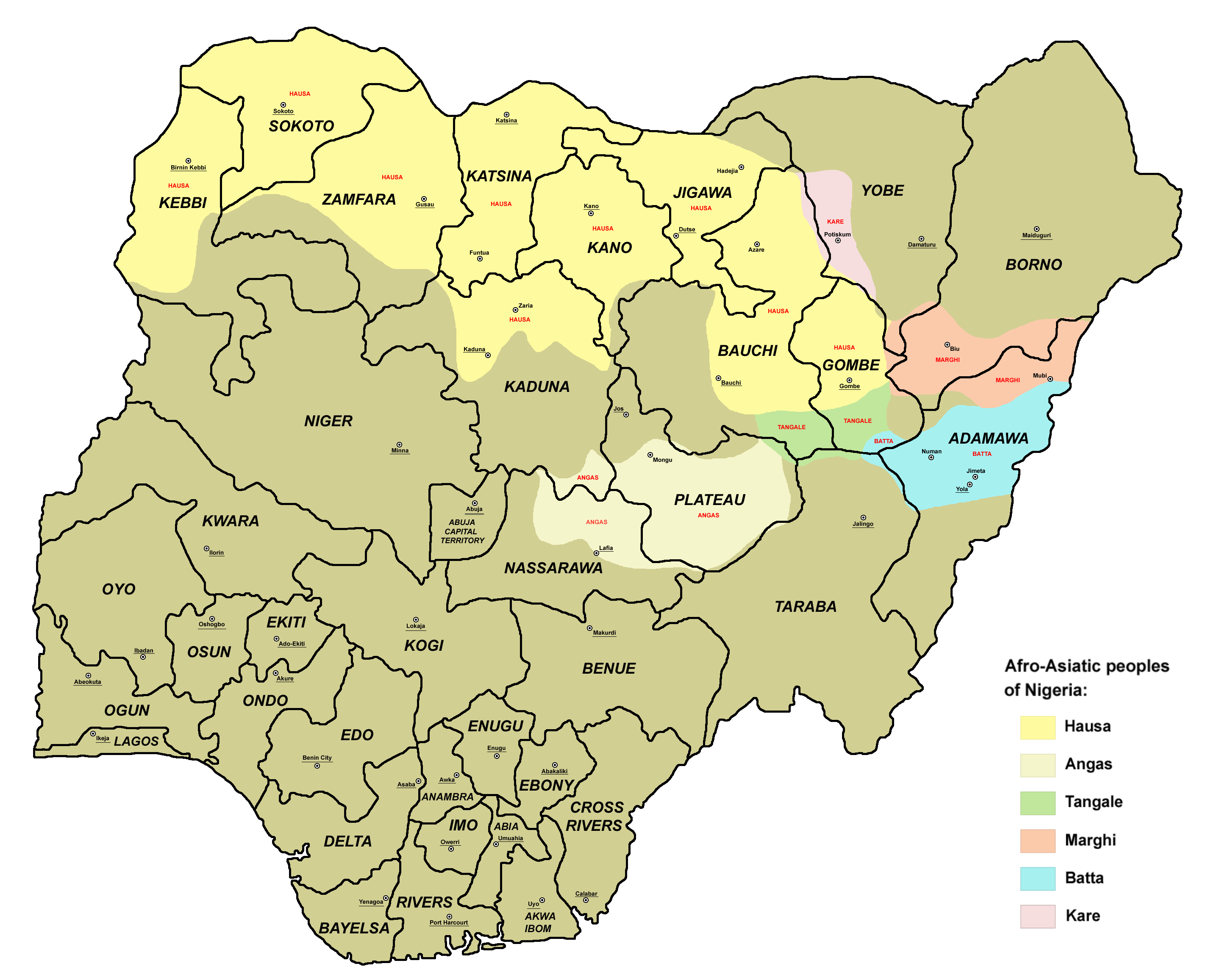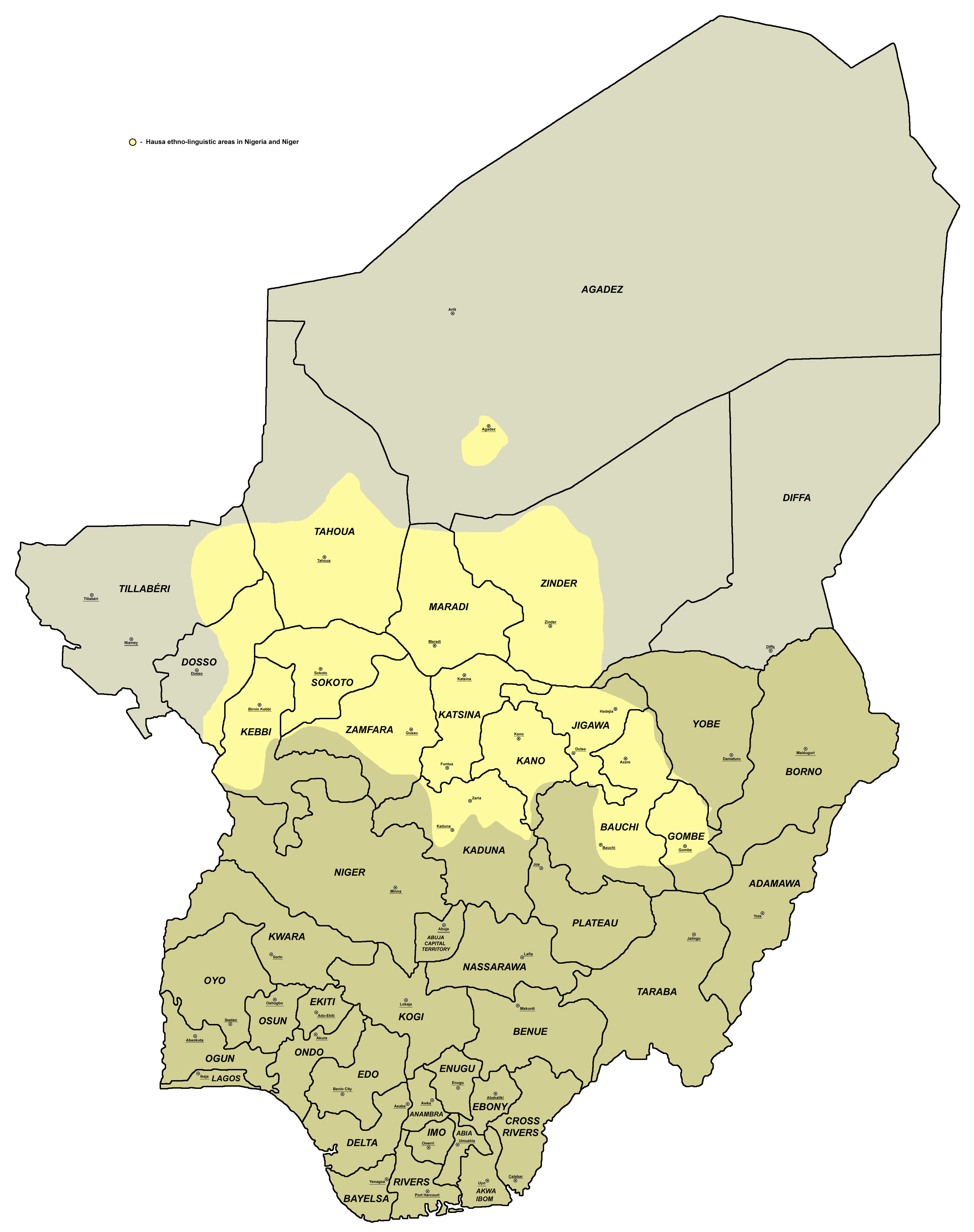|
Horom Language
Horom (Rom) is a Plateau language of Nigeria. Neighbouring ethnic groups consider the Rom to be culturally part of the Ron, who are West Chadic speakers. The Rom people are also known for their xylophone The xylophone (; ) is a musical instrument in the percussion family that consists of wooden bars struck by mallets. Like the glockenspiel (which uses metal bars), the xylophone essentially consists of a set of tuned wooden keys arranged in ...s.Blench, Roger M. 1998Recent fieldwork in Nigeria: Report on Horom and Tapshin ''Ogmios'', 9:10-11. References *Blench, Roger. 2012Horom wordlist Languages of Nigeria East Plateau languages {{plateau-lang-stub ... [...More Info...] [...Related Items...] OR: [Wikipedia] [Google] [Baidu] |
Plateau State
Plateau State is the twelfth-largest Nigerian state. It is in the centre of the country includes a range of hills surrounding the Jos Plateau, its capital, and the entire plateau itself. Plateau State is described as "The Home of Peace and Tourism". With natural formations of rocks, hills and waterfalls, it derives its name from the Jos Plateau and has a population of around 3.5 million people. Geography Adjacent states * Bauchi State – to the north east * Kaduna State – to the north west * Nasarawa State – to the south west * Taraba State – to the south east Boundaries Plateau State is located in the North Central Zone out of the six geopolitical zones of Nigeria. With an area of 26,899 square kilometres, the state has an estimated population of about three million people. It is located between latitude 8°24' N and 10°30' N and longitude 8°32' E and 10°38' E. The state is named after the Jos Plateau, a mountainous area in the north of the sta ... [...More Info...] [...Related Items...] OR: [Wikipedia] [Google] [Baidu] |
Plateau Languages
The forty or so Plateau languages are a tentative group of Benue–Congo languages spoken by 15 million people on the Jos Plateau, Southern Kaduna, Nasarawa State and in adjacent areas in central Nigeria. Berom and Eggon have the most speakers. Most Plateau languages are threatened and have around 2,000-10,000 speakers.Blench, Roger. 2007. Language families of the Nigerian Middle Belt and the historical implications of their distribution'. Presented to the Jos Linguistic Circle in Jos, Nigeria, July 25, 2007. Defining features of the Plateau family have only been published in manuscript form (Blench 2008). Many of the languages have highly elaborate phonology systems that make comparison with poor data difficult. Branches and locations Below is a list of major Plateau branches and their primary locations (centres of diversity) based on Blench (2019). The Plateau languages are highly typologically and lexically diverse. For instance, Roger Blench (2022) notes that Beromic is ... [...More Info...] [...Related Items...] OR: [Wikipedia] [Google] [Baidu] |
East Plateau Languages
East or Southeast Plateau are a "probable" group of three Plateau languages spoken in Nigeria Nigeria ( ), , ig, Naìjíríyà, yo, Nàìjíríà, pcm, Naijá , ff, Naajeeriya, kcg, Naijeriya officially the Federal Republic of Nigeria, is a country in West Africa. It is situated between the Sahel to the north and the Gulf o .... Fyam and Horom are closely related; connections to Barkul (Bo-Rukul) are more problematic. Names and locations Below is a list of language names, populations, and locations from Blench (2019). Footnotes References *Blench (2008''Prospecting proto-Plateau'' Manuscript. External links Plateau languages {{plateau-lang-stub ... [...More Info...] [...Related Items...] OR: [Wikipedia] [Google] [Baidu] |
Plateau Language
The forty or so Plateau languages are a tentative group of Benue–Congo languages spoken by 15 million people on the Jos Plateau, Southern Kaduna, Nasarawa State and in adjacent areas in central Nigeria. Berom and Eggon have the most speakers. Most Plateau languages are threatened and have around 2,000-10,000 speakers.Blench, Roger. 2007. Language families of the Nigerian Middle Belt and the historical implications of their distribution'. Presented to the Jos Linguistic Circle in Jos, Nigeria, July 25, 2007. Defining features of the Plateau family have only been published in manuscript form (Blench 2008). Many of the languages have highly elaborate phonology systems that make comparison with poor data difficult. Branches and locations Below is a list of major Plateau branches and their primary locations (centres of diversity) based on Blench (2019). The Plateau languages are highly typologically and lexically diverse. For instance, Roger Blench (2022) notes that Beromic is ... [...More Info...] [...Related Items...] OR: [Wikipedia] [Google] [Baidu] |
Nigeria
Nigeria ( ), , ig, Naìjíríyà, yo, Nàìjíríà, pcm, Naijá , ff, Naajeeriya, kcg, Naijeriya officially the Federal Republic of Nigeria, is a country in West Africa. It is situated between the Sahel to the north and the Gulf of Guinea to the south in the Atlantic Ocean. It covers an area of , and with a population of over 225 million, it is the most populous country in Africa, and the world's sixth-most populous country. Nigeria borders Niger in the north, Chad in the northeast, Cameroon in the east, and Benin in the west. Nigeria is a federal republic comprising of 36 states and the Federal Capital Territory, where the capital, Abuja, is located. The largest city in Nigeria is Lagos, one of the largest metropolitan areas in the world and the second-largest in Africa. Nigeria has been home to several indigenous pre-colonial states and kingdoms since the second millennium BC, with the Nok civilization in the 15th century BC, marking the first ... [...More Info...] [...Related Items...] OR: [Wikipedia] [Google] [Baidu] |
Ron Languages
The Ron, Ronic or Ron–Fyer languages, group A.4 of the West Chadic languages, West Chadic branch of the Afro-Asiatic language family, are spoken in Plateau State, north-central Nigeria. The Ron languages have undergone extensive influence from Tarok language, Tarok. Languages The Ron languages, and their tentative relationships, are:Blench, RogerComparative Ron wordlist ;Ron *Fyer language, Fyer, Tambas language, Tambas *(branch) **Ron language, Central Ron ***Daffo-Butura language, Daffo-Mbar-Butura ***Bokkos language, Bokkos ***Monguna language, Monguna (Shagawu) [perhaps actually closer to Sha] **Sha language, Sha **Mangar language (Chadic), Mangar **Mundat–Karfa ***Mundat language, Mundat ***Karfa language, Karfa (Duhwa) **Kulere language, Kulere (Richa) Blench (2019) groups the following in the (Central) Ron/Run dialect cluster: Bokkos, Mbar, Daffo–Butura, Manguna, Mangar, Sha. While noting that Ron is in fact a complex linkage (linguistics), linkage, Blench (2003) ... [...More Info...] [...Related Items...] OR: [Wikipedia] [Google] [Baidu] |
West Chadic
The West Chadic languages of the Afro-Asiatic family are spoken principally in Niger and Nigeria. They include Hausa, the most populous Chadic language and a major language of West Africa. Languages The branches of West Chadic go either by names or by letters and numbers in an outline format. * Hausa–Gwandara (A.1): Hausa, Gwandara *Bole–Angas (?) ** Bole–Tangale (A.2) ***North (Bole proper): Bure, Karekare, Bole, Gera, Geruma, Deno, Galambu, Giiwo, Kubi, Ngamo, Maaka (Maagha), Ɓeele, Daza (Dazawa), ?Pali ***South (Tangale): Kwaami, Pero, Piya-Kwonci, Kholok, Nyam, Kushi (Goji), Kutto (Kupto), Tangale, Dera (Kanakuru) ** Angas ( Central West Chadic) (A.3)Blench, Roger. 2017Current research on the A3 West Chadic languages ***Ngasic: Ngas (Angas), Belnəng ***Mwaghavulic: Mwaghavul, Mupun (Mapun), Takas (Toos); Cakfem-Mushere *** Miship (Chip) ***Pan cluster **** Chakato/Jorto **** Jipal, Mernyang (Mirriam), Kwagallak, Kofyar (Doemak), Bwol, Goram, ... [...More Info...] [...Related Items...] OR: [Wikipedia] [Google] [Baidu] |
Xylophone
The xylophone (; ) is a musical instrument in the percussion family that consists of wooden bars struck by mallets. Like the glockenspiel (which uses metal bars), the xylophone essentially consists of a set of tuned wooden keys arranged in the fashion of the keyboard of a piano. Each bar is an idiophone tuned to a pitch of a musical scale, whether pentatonic or heptatonic in the case of many African and Asian instruments, diatonic in many western children's instruments, or chromatic for orchestral use. The term ''xylophone'' may be used generally, to include all such instruments such as the marimba, balafon and even the semantron. However, in the orchestra, the term ''xylophone'' refers specifically to a chromatic instrument of somewhat higher pitch range and drier timbre than the marimba, and these two instruments should not be confused. A person who plays the xylophone is known as a ''xylophonist'' or simply a ''xylophone player''. The term is also popularly used to refer to ... [...More Info...] [...Related Items...] OR: [Wikipedia] [Google] [Baidu] |
Languages Of Nigeria
There are over 525 native languages spoken in Nigeria. The Nigerian official language is English, the language of former colonial British Nigeria. As reported in 2003, Nigerian Pidgin was spoken as a second language by 60 million people in Nigeria. The major native languages, in terms of population, are Hausa (over 80 million when including second-language, or L2, speakers), Yoruba (over 50 million including L2 speakers), Igbo (over 30 million, including L2 speakers), Efik-Ibibio cluster (over 15 million), Fulfulde (13 million), Kanuri (8 million), Tiv (5 million), Nupe (3 million) and approx. 2 to 3 million each of Karai-Karai Kupa, Kakanda, Edo, Igala, Idoma and Izon. Nigeria's linguistic diversity is a microcosm of much of Africa as a whole, and the country contains languages from the three major African language families: Afroasiatic, Nilo-Saharan and Niger–Congo. Nigeria also has several as-yet unclassified languages, such as Centúúm, which may represent a r ... [...More Info...] [...Related Items...] OR: [Wikipedia] [Google] [Baidu] |



